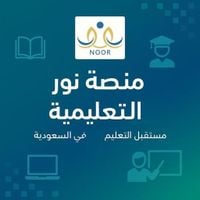In Saudi Arabia, the Ministry of Education has opened early registration for new students in schools through the "Noor" system, beginning on April 5, 2025, and continuing until May 3, 2025. This initiative aims to streamline the admission process for the upcoming academic year, allowing parents to register their children without facing congestion or delays that could disrupt educational operations. The ministry has urged parents to act swiftly to secure their children's spots before the deadline.
The "Noor" platform is a significant part of the Saudi government's efforts to digitize educational services and enhance accessibility for families. It allows parents to enter their children's information in advance, preparing them for official registration once the doors open. This proactive approach is expected to facilitate a smoother enrollment process and alleviate the electronic traffic that often occurs during peak registration times.
To register through the "Noor" system, parents must follow a series of steps. They need to log into the system via the unified national access portals using their "Absher" accounts. After logging in, they will determine their residence address on a map, which aids in directing the student to the nearest school. Parents will select the child they wish to register from a list within their accounts, review and confirm the accuracy of personal data, and agree to the terms and conditions set by the Ministry of Education. Finally, they will send the registration request electronically and await a final response regarding their application.
As part of the broader digital transformation in education, the "Noor" system offers comprehensive services, including student registration, result announcements, attendance tracking, and communication between schools and parents. This integration is vital for ensuring that students are adequately prepared for the new academic year and that schools can manage their administrative tasks efficiently.
In addition to educational reforms, the Saudi government is also focusing on economic support programs. The Citizen Account program, which aims to alleviate the economic impact of reforms on low- and middle-income families, has recently updated its eligibility criteria for 1446. These changes, announced by the Ministry of Human Resources and Social Development, are designed to enhance the support available to new applicants.
The new registration requirements for the Citizen Account program include that applicants must be Saudi citizens, with specific exceptions for children of Saudi mothers and non-Saudi spouses. Additionally, applicants must reside permanently in the Kingdom and should not have spent more than 90 days outside the country within a year. The program also stipulates that individuals must not reside in government shelters or prisons.
To successfully register for the Citizen Account, applicants must submit official documents that verify their eligibility. This includes providing proof of income, which can be either regular or irregular, and ensuring that they do not hold any business licenses or engage in commercial activities. The required documentation for registration includes a copy of the national ID, a family registry, and proof of residence, such as a utility bill or a verified rental agreement.
Once the application is submitted, it will be reviewed by the relevant authorities, and applicants will be notified of their eligibility status once the review process is completed. This structured approach aims to ensure that support reaches those who need it most, reinforcing the government’s commitment to enhancing the welfare of its citizens.
As the Kingdom continues to implement these digital and economic reforms, both the "Noor" system and the Citizen Account program represent significant strides towards improving access to education and financial support for families across Saudi Arabia. With the deadline for early registration for schools fast approaching, parents are encouraged to take advantage of these initiatives to secure their children’s educational future and ensure they are well-prepared for the upcoming academic year.




